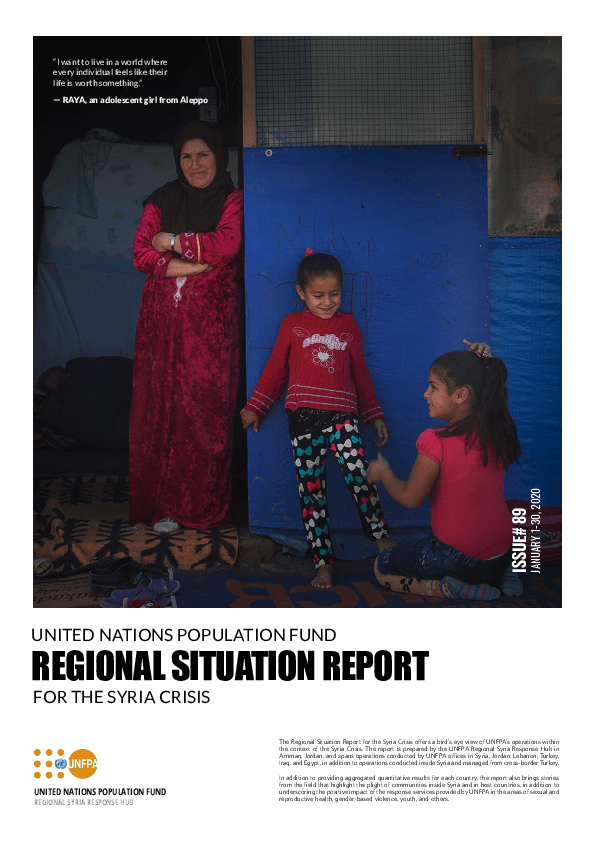
Regional Situation Report for Syria Crisis #89 January 2020
Resource date: 31 January 2020
Publisher: UNFPA Regional Syria Response Hub
Ongoing tensions in the country’s northern region continue to drive mass displacements. In January, humanitarian conditions in the region worsened considerably, with nearly than 586,000 people displaced in Idlib following a second wave of displacements that began in late 2019. The vast majority of those displaced are women and girls, further adding to the protection risks associated with the crisis.
Access to health care continues to be an essential need for newly displaced individuals and for host communities, particularly for pregnant women. Multiple displacements and lack of access to basic services further exacerbate the needs of individuals and communities, in addition to significantly increasing the risks of gender-based violence (GBV). Additional displacements further strain already stretched coping mechanisms of individuals and families, leading to desperate measures that further increase the likelihood of protection threats, such as sexual exploitation, forced and early marriage, among others.
In response to these dire needs, UNFPA continues to provide services to people in need of sexual and reproductive health (SRH) and GBV integrated services, with a focus on the needs of women and adolescent girls. A variety of SRH services are being delivered, including antenatal care, family planning, normal delivery services, postnatal care, referrals, treatment of reproductive tract/urinary tract infection, treatment of trauma, and others. UNFPA also addresses the needs of women and adolescent girls by providing GBV response services such as case management, psycho-social support, clinical management of rape, and referrals.